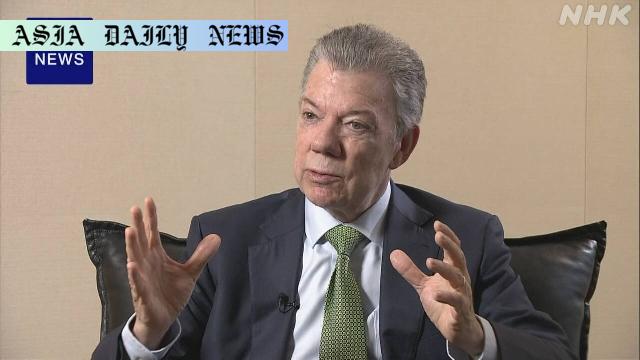Dialogue is essential for resolving conflicts, says Nobel laureate Juan Manuel Santos, emphasizing empathy and perseverance.
Dialogue is essential for conflict resolution, says Juan Manuel Santos.
Santos emphasizes empathy, compassion, and patience for understanding adversaries.
Nuclear threats and global conflicts require immediate attention.

The Importance of Dialogue in Resolving Conflicts
Dialogue has long been regarded as the cornerstone of effective conflict resolution. Former Colombian President and Nobel Peace Prize laureate Juan Manuel Santos recently reaffirmed this during his visit to Tokyo for a symposium. Santos, who chairs The Elders, a group dedicated to fostering peace, shared profound insights on approaching global conflicts. His message was clear: dialogue is an indispensable tool in bridging divides and achieving peaceful resolutions.
Drawing from his own leadership role in ending Colombia’s half-century-long civil war, Santos emphasized the necessity of stepping into the adversary’s shoes. Understanding differing perspectives, he argued, is the first step towards meaningful compromise. He further highlighted how empathy, compassion, perseverance, and patience are instrumental in creating conditions conducive to peace. By prioritizing listening and genuine effort to learn from opponents, common ground can be achieved—an approach that transcends mere imposition of ideologies.
Nuclear Risks and Global Tensions
In today’s world, the looming threat of nuclear escalation adds urgency to Santos’s message. He expressed deep concern over the increasing nuclear arsenals and the heightened rhetoric among global powers. Eighty years after the end of World War Two, the world finds itself grappling with tensions that threaten not just individual nations but humanity as a whole. Santos’s remarks urge leaders and citizens alike to prioritize dialogue over confrontation, especially in an era where the stakes have never been higher.
The risks associated with nuclear weapons highlight a broader truth: conflict resolution must evolve in its approach, focusing on consensus and mutual understanding. Through diplomacy and enduring dialogue, Santos believes every conflict—from territorial disputes to large-scale war—can ultimately be resolved. His optimism is a testament to the transformative power of communication in fostering peace.
What We Can Learn From Santos’s Approach
Santos’s personal experience ending Colombia’s civil war serves as a powerful case study. His administration’s persistence in engaging with various factions, despite resistance and setbacks, underscored the necessity of unwavering commitment in pursuing peace. The Colombian peace process demonstrated that success is not linear. It requires adaptability, patience, and a steadfast belief in dialogue as the pathway to resolution.
As global leaders face rising geopolitical tensions, Santos’s insights remind us that empathy must remain at the heart of peacebuilding efforts. Understanding


